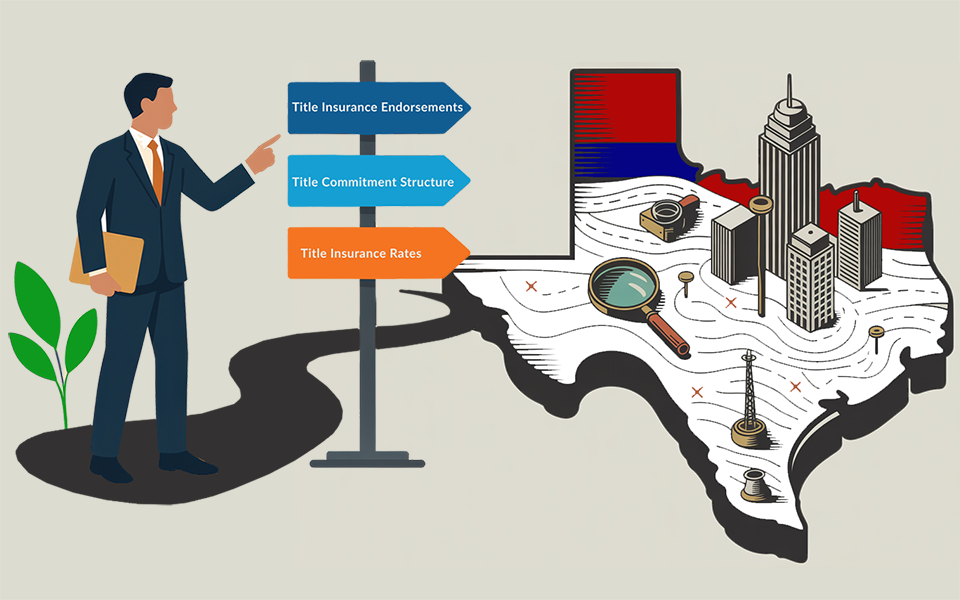December 22, 2025
The Hidden Headaches of Association Estoppels in FL — And How to Avoid Them

Few documents cause as many unexpected delays and frustrations in the complex world of Florida real estate transactions as association estoppels. What should be a straightforward verification process often becomes a bottleneck that threatens closing timelines and tests the patience of everyone involved. Understanding how to navigate these challenges efficiently can make the difference between a smooth closing and a transaction nightmare for title agents, real estate professionals, and closing coordinators across the Sunshine State.
What Exactly Is an Association Estoppel Certificate?
At its core, an association estoppel certificate is a binding statement from a homeowners association (HOA) or condominium association that verifies the current status of a property within the community. This critical document outlines whether a property has outstanding financial obligations, violations, or other issues that might affect the transfer of ownership.
In Florida, where nearly 10 million residents live in association-governed communities, estoppel certificates are not merely optional—they're legally required. Florida Statutes 718.116 (for condominiums) and 720.30851 (for homeowners associations) establish specific requirements for these documents, including response timeframes and fee limitations.
The certificate typically contains:
- Current and pending association assessments
- Special assessment information
- Outstanding violations of association rules
- Confirmation of insurance compliance
- Transfer fees and capital contributions
- Other financial obligations that might affect closing
What makes these documents particularly important is their binding nature. Once issued, an association cannot later claim additional amounts due for the period covered by the estoppel—making them essential protection for buyers and title companies alike.
Why Florida Estoppels Cause Such Significant Headaches
Florida's real estate landscape presents unique challenges regarding association estoppels. Here's why they often become transaction bottlenecks:
1. The Sheer Volume of Association-Governed Properties
Florida leads the nation in community associations, with over 48,500 associations managing properties across the state. This density creates an administrative burden that many management companies struggle to handle efficiently, especially during peak real estate seasons.
2. Strict Statutory Timelines with Limited Flexibility
Florida law requires associations to provide estoppel certificates within 10 business days of a request. While this timeframe might seem reasonable, many associations operate with limited staff or outsource management functions, creating delays when volume increases.
3. Management Company Transitions and Record-Keeping Issues
It's not uncommon for associations to change management companies. During these transitions, records can become disorganized or incomplete, making it difficult to produce accurate estoppel certificates promptly.
4. Outdated Contact Information in Public Records
One of the most frustrating challenges comes from outdated contact information. Property records might list a management company that no longer represents the association, or the association might have changed its contact details without updating public records.
5. Complex Assessment Structures
Many Florida communities, particularly resort-style developments and luxury condominiums, have multi-tiered assessment structures that include master associations, sub-associations, and specialized amenity assessments. Each may require separate estoppel requests, compounding potential delays.
Common Pitfalls That Derail Closings
When dealing with association estoppels in Florida, several specific issues consistently create problems for real estate professionals:
Unexpected Unpaid Assessments
Nothing derails a closing faster than discovering substantial unpaid assessments on an estoppel certificate. These can range from regular monthly dues to special assessments for capital improvements. In some cases, sellers may be unaware of these obligations, particularly when they involve recently approved special assessments that haven't yet appeared on regular statements.
Undisclosed Rule Violations
From unauthorized modifications to landscaping violations, HOA and condo rule infractions can appear on estoppel certificates and require resolution before closing. These violations often surprise sellers who may have received approval from a board member verbally but without formal documentation.
Outdated or Incorrect Management Contacts
The most time-consuming challenge is locating the correct entity to process the estoppel request. Management companies change, associations transition to self-management, and contact information becomes outdated. Title professionals often spend hours playing detective to find the right contact—time that could be better spent on other closing tasks.
Delayed Responses Despite Statutory Requirements
Even with Florida's 10-business-day requirement, some associations consistently miss these deadlines. The statutory penalties for non-compliance provide little immediate relief when facing a closing deadline.
Incorrect Fee Calculations
Florida law caps estoppel fees (currently $250 for regular processing, with additional charges permitted for expedited requests or delinquent accounts). Still, some associations or management companies attempt to charge excessive fees, creating disputes that delay the process.
Strategic Approaches to Navigate Estoppel Challenges
For title agents and real estate professionals working in Florida's complex market, implementing proactive strategies can dramatically reduce estoppel-related delays:
1. Order Estoppels Early in the Transaction Process
The single most effective strategy is ordering estoppel certificates immediately after a contract is executed rather than waiting until the title work is complete. This buffer allows time to address unexpected issues without jeopardizing the closing timeline.
2. Maintain a Comprehensive Database of Association Contacts
Developing and regularly updating a database of association contacts saves precious time when ordering estoppels. This resource becomes particularly valuable in markets with high concentrations of HOAs and condominiums.
3. Verify Multiple Contact Methods
Never rely on a single contact method when requesting estoppels. Verify email and phone contacts and identify backup contacts within the management company or association board when possible.
4. Pre-Screen Properties for Association Issues
Before ordering estoppels, ask sellers about any known association issues, recent special assessments, or rule violations. This pre-screening can identify potential problems early in the process.
5. Build Relationships with Management Companies
Title professionals who develop relationships with association management companies often receive more responsive service. These connections become invaluable when expedited processing is needed.
How Skyline Title Support Transforms the Estoppel Process
We've developed specialized systems at Skyline Title Support to eliminate the estoppel headaches that plague Florida real estate transactions. Our approach combines technology, expertise, and relationships to deliver
Best Practices for Florida Real Estate Professionals
To minimize estoppel-related closing delays, we recommend these proven strategies:
For Real Estate Agents:
- Request seller authorization for estoppels at listing time rather than waiting for a contract
- Include specific association contact information in MLS listings when available
- Verify with sellers any recent special assessments or rule violations before listing
- Disclose to buyers early if a property belongs to multiple associations
- Partner with title companies that specialize in association research and verification
For Title Agents and Closing Coordinators:
- Implement a standardized estoppel ordering process that begins immediately after contract execution
- Develop internal tracking systems with automated follow-up protocols
- Establish direct relationships with major management companies in your market
- Create contingency plans for problematic associations known for delayed responses
- Consider outsourcing estoppel processing to specialists during high-volume periods
Beyond Basic Compliance: The Future of Association Verifications
The association estoppel landscape continues to evolve in Florida. Recent technological advances and regulatory changes are reshaping how these critical documents are processed:
Legislative Changes
Florida's legislature regularly revisits estoppel regulations, with recent sessions considering further fee limitations and more substantial penalties for non-compliant associations. Staying current with these changes is essential for real estate professionals.
Conclusion: Turning Estoppel Challenges into Competitive Advantage
Association estoppels may continue to present challenges in Florida real estate transactions, but with the right approach, these potential headaches can be transformed into opportunities for service excellence.
By understanding the common pitfalls, implementing proactive strategies, and partnering with specialists like Skyline Title Support, real estate professionals can confidently navigate the complexities of association verifications.
In a market where closing delays can jeopardize transactions and damage client relationships, mastering the estoppel process provides a significant competitive advantage. Those who invest in developing effective estoppel management systems—whether internal or through specialized partners—position themselves as true transaction experts capable of delivering the smooth closings that clients expect.
For more information about how Skyline Title Support's specialized association verification and real estate document services can eliminate estoppel headaches from your transactions, contact our team today.
Related Posts
Florida HOA Estoppels in 2026: Timelines, Fees, and the Real Reasons Closings Get Held Up
You have a clean title search. The lender docs are in. The buyer is packed and ready to move. And then you get the call: the HOA estoppel hasn't ...
February 10, 2026
How to Read a Title Commitment: 12 Exceptions That Scare Buyers (But Don’t Always Kill the Deal)
If you have ever opened a title commitment and felt your stomach drop when you hit the exceptions, you are not alone. Buyers often see a long ....
January 31, 2026
2026 Title Industry Outlook: Top 10 Trends That Will Redefine Due Diligence and Closings
The title industry is heading into 2026 with more moving parts than at any time in recent memory: rapid regulatory change, deeper fraud risk ...
December 22, 2025
Witchy Titles & Cursed Closings: What Salem’s History Can Teach Us About Real Estate Due Diligence
In 1692, the town of Salem, Massachusetts descended into chaos. Fueled by fear, rumors, and suspicion, dozens of people were accused of witchcraft and ...
December 22, 2025
Real Estate Due Diligence Checklist: 9 Hidden Costs That Kill Closings
Imagine this: A $3.2 million Miami Beach home sale implodes because of a $127 unpaid utility lien that no one caught in time. Absurd as it sounds ...
December 22, 2025
A Complete Guide to HOA Estoppel Letters: Everything Title Professionals Need to Know
Picture this: You're three days from closing, and suddenly you discover the HOA has outstanding fees that nobody knew about. The seller is scrambling ...
December 22, 2025
How Can Large Title Companies Thrive in Volatile Times?
When mortgage rates climbed to 23-year highs in late 2023, one national title insurer watched transaction volume plummet 45% over eight weeks yet ...
December 22, 2025
The Title Pro's AI Companion: Using Skyline's SmartTitle Assistant
How much time did you spend drafting repetitive client emails today? Our average title professional saves 5+ hours weekly using SmartTitle Assistant™ ...
December 22, 2025
Navigating Market Volatility: What Title Professionals Need to Know Now — and What's Ahead in 2025
In today's real estate landscape, the only constant is change. Fluctuating interest rates, economic uncertainty, and shifting regulatory policies have ...
December 22, 2025
Title Industry 2.0: Harnessing AI, Data, and Cybersecurity for a Resilient Future
The title industry is at a crossroads. Traditional methods that have served us well for decades now face mounting challenges in an increasingly ...
December 22, 2025
How Title Services Impact Mortgage Underwriting Timelines
In the world of real estate, the journey from application to closing is filled with numerous moving parts. Among these, title services are a crucial yet ...
December 22, 2025
How Title Companies Can Meet Tight Deadlines Without Sacrificing Quality
In today's fast-paced real estate environment, speed is crucial. Title companies often find themselves in high-pressure situations where they must juggle ...
December 22, 2025
5 New Year's Resolutions for Title Companies in 2025
As 2025 kicks off, the title industry is moving faster than ever. With new technologies, shifting customer needs, and more complex regulations, there’s ...
December 22, 2025
What’s Next for the Title Industry? Key Trends for 2025
The title industry is at a pivotal moment, with 2025 shaping up to be a year of significant transformation. From groundbreaking technologies like blockchain ...
December 22, 2025
Navigating the Cyber Minefield: A Title Professional's Complete Guide to Phishing Defense
The title industry is a prime target for cybercriminals, and phishing is one of the most common threats that title professionals face today. Imagine this ...
December 22, 2025
How to Overcome Common Title Operations Challenges and Boost Efficiency
Running a title company means you’re a key player in the real estate world, making sure property transactions go smoothly and securely. But, we get it ....
December 22, 2025
Maximize Efficiency in Your Title Business with AI
Integrating AI into title businesses can significantly enhance efficiency, accuracy, and customer service. By automating routine tasks, improving...
December 22, 2025
Recent Posts

























.png)



